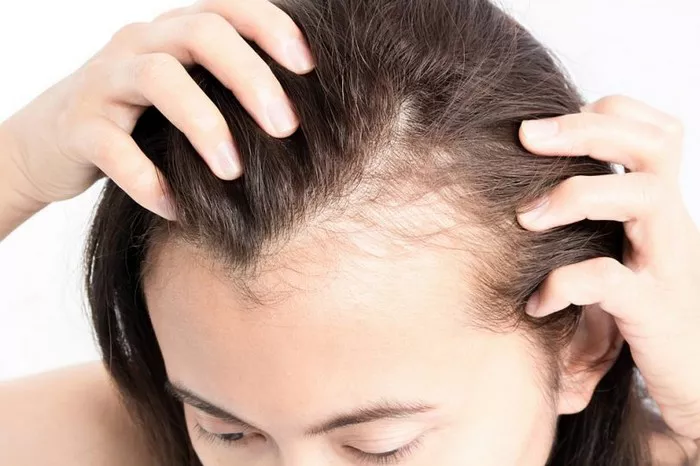In the fast-paced world we live in, stress has become a common companion, often leaving its mark not only on our minds but also on our physical well-being, including our hair. Stress-induced hair loss is a concern that affects many individuals. However, the silver lining is that there are actionable strategies that can help you navigate through this challenge while fostering healthier hair growth. In this article, we’ll delve deeper into a range of practical techniques to effectively combat hair loss caused by stress.
1. Prioritize Stress Management: Incorporating Relaxation Techniques
Stress management is pivotal not just for your overall well-being but also for the health of your hair. Engaging in relaxation techniques such as yoga, meditation, progressive muscle relaxation, and deep breathing can significantly reduce stress levels, indirectly benefiting your hair’s vitality.
See Also: Does stress cause hair loss
2. Nutritional Support: Eating for Hair Health
A balanced and nutrient-rich diet plays a vital role in hair health. Foods rich in antioxidants, vitamins (especially A, C, and E), minerals (like zinc and iron), and omega-3 fatty acids nourish both your body and your hair follicles, promoting growth and resilience.
3. Hydration: A Quenched Scalp and Hair
Sip your way to healthier hair by staying adequately hydrated. Hydration supports the scalp’s health, preventing dryness and flakiness that can exacerbate hair loss.
4. Embrace Sound Sleep Habits: A Rejuvenated Scalp and Mind
Quality sleep is your hair’s nighttime friend. Prioritize 7-9 hours of uninterrupted sleep to help your body manage stress and regenerate, positively impacting hair growth.
5. Gentle Hair Care Routine: Treat Your Hair Kindly
Your hair deserves TLC, especially during times of stress. Opt for gentle hair care routines, avoiding harsh treatments, tight hairstyles, and excessive heat styling that can contribute to hair breakage and loss.
6. Seek Professional Guidance: Consulting Experts
When the journey feels overwhelming, reach out to healthcare professionals or dermatologists. They can assess your hair’s condition, offer personalized advice, and suggest suitable treatments to manage stress-induced hair loss.
7. Choose Hair-Friendly Products: Nourishing Your Locks
Select hair products enriched with nourishing ingredients like biotin, keratin, and botanical extracts. These can help strengthen your hair and contribute to a healthier appearance.
8. Stimulate Circulation with Scalp Massages
Indulge in the luxury of scalp massages. Not only are they soothing, but they also enhance blood circulation to hair follicles, fostering an environment conducive to hair growth.
9. Consider Stress-Reducing Supplements
Consult a healthcare professional before introducing supplements to your routine. Supplements like biotin, vitamin D, and omega-3 fatty acids may support hair health when included as part of a balanced approach.
10. Holistic Approaches: Mind-Body Practices
Mind-body practices such as tai chi and yoga offer dual benefits by reducing stress and promoting overall well-being, which in turn contributes to healthier hair.
11. Seeking Professional Support: Therapy and Counseling
In times of heightened stress, seeking professional help through therapy or counseling can equip you with coping mechanisms and strategies to manage stress effectively, ultimately benefiting your hair health.
12. Embrace Patience: The Journey to Healthier Hair
Remember that hair growth is a gradual process. The changes you make today may take time to manifest visibly. Be patient and consistent in your efforts, knowing that each positive step contributes to the well-being of both your hair and yourself.
Conclusion
While stress-induced hair loss can be a challenging journey, it’s heartening to know that you possess the power to navigate it with grace and resilience. By weaving stress management techniques, mindful nutrition, and a holistic approach to self-care into your routine, you can not only combat hair loss but also nurture a deeper connection between your inner well-being and the outward manifestation of your hair’s health.


